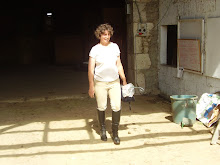Coin = pièce de monnaie Path = piste Beggar = mendiant
gate = portail Wise = sage wisdom = sagesse
I
There was a young man. He wanted to be wise. He went to a wise old man. The wise old man told the young man to give a coin to every person who insulted him, every person who upset him, every person who made him angry. He told him to do this for one year.After one year, the young man returned to the wise old man. “What do I do now?” he asked.
“Go into town and buy food for me,” answered the wise old man.
When the young man was gone, the old man changed his clothes. He dressed like a beggar and went to the gate. When he saw the young man returning from town, he began to insult him.
The young man laughed! “For a whole year I had to pay the people who upset me. Now it’s free. I don’t have to spend any more money on insults.”
The wise old man smiled. “Now you are on the path to wisdom,” he said.
II
Step = pas spending= dépenser removed = enleva“Over the course of one year, give a coin to each person who offends or upsets you,” instructed the abbot of a young man who wanted people to follow a spiritual path.
For the next twelve months, the boy gave a coin to each person who offended or upset him, as he was instructed. At the end of the year, he returned to the abbot to find out what the next steps were.
“Go into town and buy food for me,” the abbot responded.
Once the boy left, the abbot changed his clothes, disguised himself as a beggar and went to the gate. When the boy approached, he began to insult him.
“Good!” said the boy, “for a whole year I had to pay the people who upset or offended me, and now I can be offended for free, without spending anything!”
Hearing this, the abbot removed his disguise.
“He who does not take insults seriously, is on the path to wisdom.”
Paulo Cuelho
